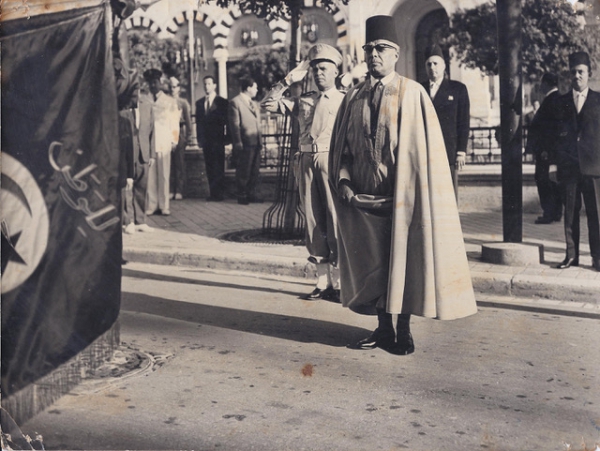The way that history is written emerged as a focus of the transitional justice week, be it in Tunisia, Palestine, Israel or Rwanda. Transitional justice is not just about judicial mechanisms, trials and convictions. Reconciliation also requires acceptance of a common history of a divided past.
Rwanda is perhaps the only country emerging from genocide where victims and killers have found themselves living together (again). Our Rwanda correspondent Emmanuel Sehene Ruvugiro reported from Gisenyi and the so-called “Red Commune”, which was the site of massacres in 1994. It was called red after the blood of the victims who were made to believe they were being taken to see the Mayor of Gisenyi. Our correspondent met family members of Tutsis who were killed there in 1994, such as Innocent Kabanda, who was then 13. In the early morning of April 7, 1994, a group of militiamen detained his father and said they were taking him to “the Commune”. When he heard the word “commune”, Kabanda’s father thought these young militiamen were taking him to the local mayor, who was a friend of his. “The Mayor is my friend, he will certainly have me set free,” he said, trying to reassure his family. And so he went with the militiamen, carrying his identity card. “We never saw him again,” says his son Innocent.
Our correspondent also tells the story of Sister Felicita, a Hutu nun who hid persecuted Tutsis and who was also killed at the “Red Commune”. “At the National Heroes cemetery in Kigali, where her symbolic grave lies, there is only her photo, for her body was never found,” he writes. “It lies with those that she tried to protect in the silent anonymity of the `Red Commune`”.
Tunisia, whose past is less tragic but tragic nonetheless, is also trying to come to terms with its past. One of its battles is the way history is taught in schools. “A third survey by the Transitional Justice Barometer research body aims for reform of Tunisia’s history teaching manuals,” writes our correspondent Olfa Belhassine. “According to its field research amongst victims of the dictatorship and in `victimized regions`of Tunisia, there is a persistent feeling that the authorities have forgotten or are even deliberately denying historical events related to dissidence that have taken place in the contemporary period. Six years after the revolution, only small changes have been made to history textbooks in schools.”
This concern for history is shared by Said Abu Shakra, an Israeli Arab who hopes to create the first Palestinian history museum in his town of Umm-el-Fahem in Israel, which has 50,000 inhabitants. Through culture and a museum on the history of the Palestinian people, Said Abu Shakra hopes to save the young people of his town from despair and violence. “The young people of Umm-el-Fahem need hope,” he told JusticeInfo’s editorial advisor Pierre Hazan. “If they are humiliated and marginalized, if they despair of Israeli society, then they will become violent. If, on the other hand, they can find their dignity again, they will channel their energy in a positive way.
Said Abu Shakra thinks the Israelis understand this. “Said Abu Shakra does not talk to Israeli visitors about the Nakbah (forced exile of Palestinians in 1948),” writes Hazan. “I talk about my mother Myriam, born in the village of Lajoum on which a kibboutz was built, and of what she experienced,” he is quoted as saying. “Of how she placed food in a corner of the kitchen and covered it with a cloth because she thought she would be returning within 48 hours. But she was never able to. Visitors connect with this story emotionally. Through this story they no longer think about 1.5 million Palestinians with an Israeli passport as a threat. They listen to the story of Myriam.”
French historian Patrick Boucheron also stressed the importance of history in an inaugural speech to the Collège de France, because, he said, “history can also be an art of discontinuity”. “It can throw genealogies and identities into question and open a space in time where there is a right to question what happened and thus be more open to understanding of the present.”







